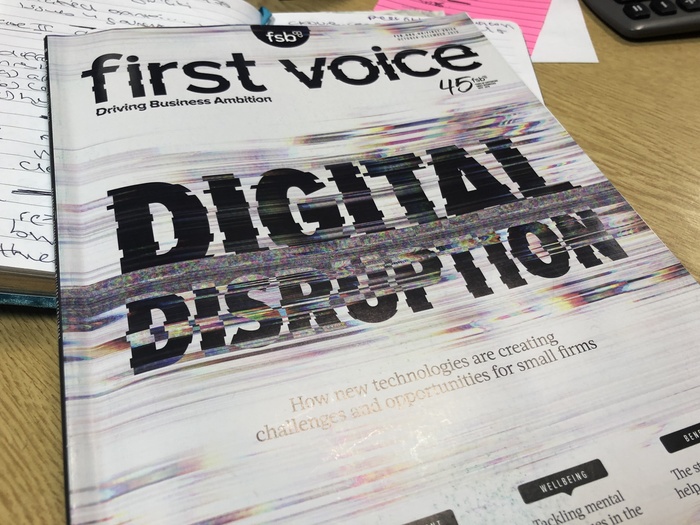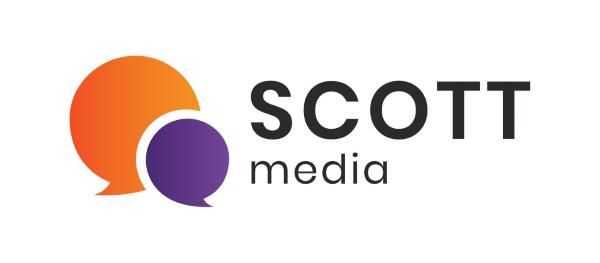FSB calls on small businesses to fully embrace digital to remain relevant
A comment piece by our business journalist Fiona Scott...
I cannot count the number of times I hear business owners – often of bigger and more established SMEs say things like ‘I hate social media’, ‘we don’t need it as our business comes from referrals’ or ‘it’s not grammatically correct on social media’.
Now I’m the first to get upset by the incorrect use of the apostrophe which I see all around me these days – businesses offering MOT’s (arrgh!) or an event featuring music from the 1980’s (double arrggh!).
I’ve long ago given up trying to argue with someone who has such a fixed mindset over the new ways in which we communicate. There’s little point pushing on a closed door.
However, if pressed, I’ll often point out that the Millennial generation and the generation behind them don’t communicate in the way we do and ‘wanting things to be different’ is a fool’s game. Not embracing this now will make your business invisible within five years I predict.
In communication we need balance. We need to do a mix of activities to make our business activity relevant to people of different ages and generations – unless it’s solely aimed at one single age range. Even then, especially when considering children, it will be their parents or guardians who are the final decision-makers – because they will be paying!
It’s still great to have a retail shop for example, allowing people to come in and browse your products, perhaps with an area to have a free coffee or similar – however you will have to also sell online to keep the income flowing to cover your overheads. Being small and agile, offering experience and added value will help keep you afloat against the beast of the internet.
Instead of lamenting the new way in which people buy – accept it and embrace the opportunities. Look for your niche. I recently attended a business summit where Steve Clarke, the outgoing CEO of W H Smith, talked about how the business took on Amazon – by not taking them on and trying to compete. By accepting what Amazon was, what it could do and looking for its point of differentiation. In this case going back to basics to capture the buying impulses of those passing through train stations and airports where there is a more captive market.
There’s an interesting article in the latest edition of First Voice, the quarterly magazine of the organisation the FSB which deals with some of this. Called ‘Changing Times’, it sets the scene of the new digital age, telling us that today more than one in every five pounds spent is spent over the internet.
Established businesses that don’t start to move with the times will end up in trouble – and we’re seeing this regularly now. Look at the High Street everywhere. Those companies which are too big, too slow to adapt, surviving on debt are failing.
Also, this new digital age is bringing new opportunities to smaller, more agile businesses and these are often one-man or one-woman bands. As the article says:
“Technology has helped to level the playing field; it’s often easier for small firms to compete online than in a physical environment.”
We are also seeing this trickle down into recruitment where new talented staff want greater flexibility in their lives, they are more conscious of work/life balance and tend to be more attracted to smaller firms for this reason. In a place like Swindon where recruitment can be difficult, this new way of thinking needs to be embraced. Some younger people – and evidence suggests it will be the majority – want more flexibility and want to work within a company with a more caring, community focussed attitude and ethos.
When I hear negative comments about the digital world from business owners or directors –often of a similar age to myself – what I often hear is actually fear.
According to the FSB’s research more than a quarter of business owners in England lack confidence in their basic skills, and around 22 per cent believe their staff’s lack of basic digital skills is holding the business back. There's a real tension here when it comes to moving forward.
I spoke to an established business owner recently who doesn't even have a website and 'messes' about a little on social media. He wants to retire in the next few years, he's in his early 60s. I assumed his business would retire with him therefore I said there's little point in investing if your current client base will get you through to your retirement. He then told me he hoped to sell his company. I asked him if he felt his lack of online profile might harm the value of this business at all? This gave him pause. As a result he's now investing.
There is a dark side of course – and with this digital opportunity comes the greater risk of cyber attacks which are on the rise. The FSB believes around 20 per cent of small firms have been victims on the last two years and the annual cost is around £4.5billion at present.
The FSB is lobbying government to be more robust in its policing of this; banks to ensure their systems are more resilient; and software providers by provide automatic patching and updates as a default option for their products.
However, statistics and predictions do indicate that the opportunities far outweigh the risk (and the FSB can help with that as well).
Here are some stats from the First Voice report:
- 5.11 bn mobile phone users in 2019 - up two per cent on 2018.
- 93 per cent - the proportion of UK internet users expected to shop online by 2021.
- £133.6bn - the value of UK business to business online sales in 2017.
- 320bn - the number of emails sent globally each day by 2021 (according to Statista)
- 121 - the average number of emails received each day by an office worker.
- 3.48bn - the number of social media users worldwide this year (according to We Are Social)
On the downside:
- 10,000 - the number of cyberattacks against small firms daily
- £1,300 - the average cost of a cyber attack on a small firm.
- 27 per cent - the proportion of UK workers who believe their job will be automated over the next five years.
Digital is here to stay – being part of the game and embracing it in a sensible and educated manner will stop you from being left behind. (oh and if you are scared, get trained or outsource!)


















